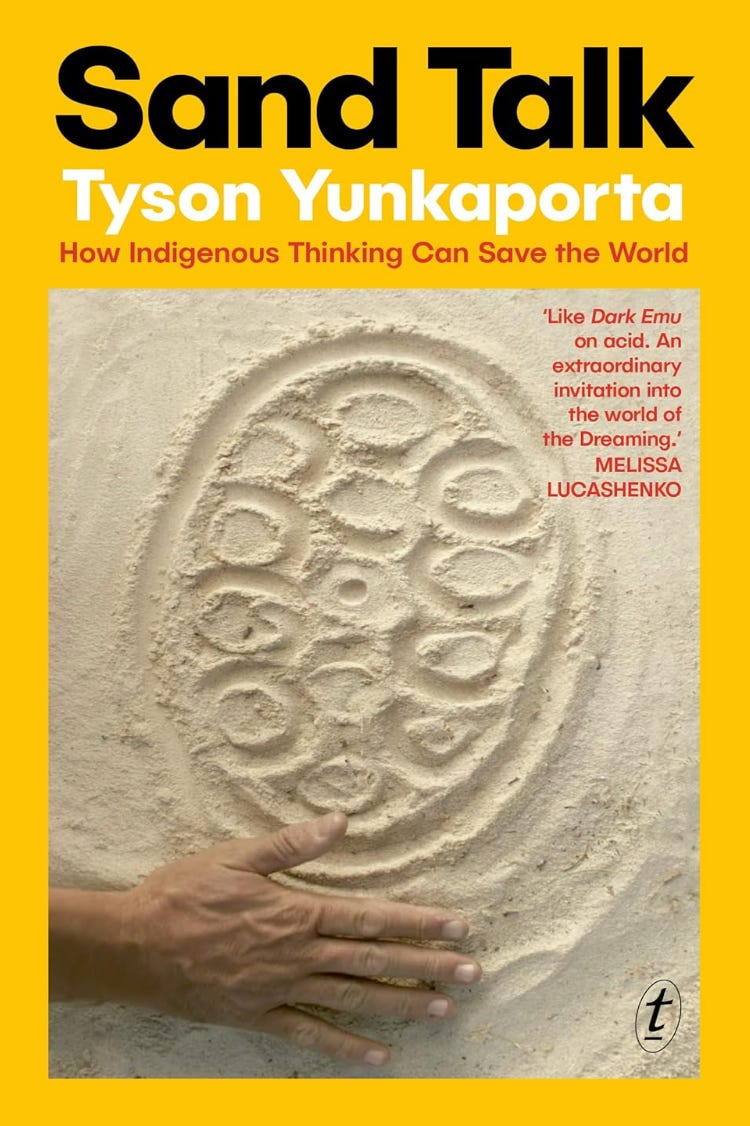'I locate; therefore I am'
... how aboriginal thinking helps us question Rene Descartes' famous maxim
I first became interested in Rene Descartes when I read an article by the kids TV presenter of my era Johnny Ball (father of Zoe) in the Idler when I was working there. Ball explained that Descartes was an idle idol because he found it almost impossible to get out of bed in the morning and was given special dispensation from the monks in the Jesuit College he attended (from the age of 11) because he was so good at maths.
Since then I’ve come across Descartes in various philosophy podcasts and books because of his idea that the mind and body are separate things that he expressed in his famous maxim ‘I think; therefore I am’. This became known as 'Cartesian Dualism’ and is the philosophical underpinning for much of the way we live in the West today. I’m wildly simplifying here, but the dualism of mind and body was one of the ideas that rose up in the move away from living according to religious superstition and towards rational science during the Enlightenment that led to the modern Western world. As a result of his break from Aristotelianism, the Brittanica encyclopaedia describes Descartes as ‘the father of modern philosophy’. The fact that his most famous statement is often described as a maxim, which means 'a truth or fundamental principle’, shows how established in the Western mind it has become.
However, I’ve read lots of books in the last few years (including The Body Keeps the Score by Bessel van der Kolk and When the Body Says No by Gabor Mate) that challenge the idea of the body and mind being separate things from a mental and physical health perspective, and as a result it seems absurd to to me to think of myself in a dualistic way. I was thrilled, then, a few weeks ago when I came across an interview with Tyson Yunkaporta (author of the brilliant Sand Talk: How Indigenous Thinking Can Save the World) where he explained a more appropriate equivalent to ‘I think; therefore I am’ in the aboriginal mind would be ‘I locate, therefore I am’.
I don’t know about you, but this fries my brain (in a good way) because it takes me way beyond what I already know. ‘I locate; therefore I am’ is the most radically progressive and uplifting way of seeing my place in the world I have ever come across.
The most obvious thing about the aboriginal version is that instead of your existence being defined by you as an individual, alone in your own mind, as the Cartesian one suggests, it is defined about you being somewhere instead. It’s not all about you! It’s about your relationship with your surroundings, community, nature and your story within the wider world itself.
We live in a self obsessed mindset that tells us life is all about us as individuals rather than the place and role we have in the world. Perhaps I’m over reaching here, but it feels that we have taken Cartesian Dualism to absurd extremes and our self obsession has created a world where individual achievement always trumps the collective. The focus seems to always be what can I have? What can I get away with? What can I take? Rather than what’s best for the community I am part of? And what can I give?
If our sense of existence was based on our relationship with the outside world instead of being siloed in our own minds, life would become about the relation between yourself and where you are. Your existence would rely not on your own perspective but on how you connect with what is around you instead. It seems suddenly obvious that with this philosophical underpinning we would all live our lives in a very different way. We would live outwardly, not inwardly. We would value our surroundings whether it’s our communities, nature, past, present and future far more than ourselves. And, perhaps most crucially of all, we would treasure the moment and where we actually are in this world rather than some point in the future where we think we want to be.
I’m done with Descartes and have taken ‘I locate; therefore I am’ to heart.
It’s so liberating.
Thanks for reading and, as always, let me know what you think.
Dan






This is such a great way of seeing how we can be in our lives differently, in ways that help us connect beyond ourselves and how where we're situated offers so much more than we allow it to. I've been writing this week about how we've become so self-guided that we've forgotten to be collectively anything, and the idea of "I locate; therefore, I am" is such a great counterpoint to going ever inwards.
This fascinating Dan. Thank you for sharing your thoughts. I was also in a 'brain-frying in a good way' conversation yesterday around what it means to think as a human (rather than 'think' as a bot or AI). A very clear element of that was the fact that we're embodied and experienced. We 'know' things as a result of the places we've been, the people we've met there, the experiences we've had and so on - in essence, our relationship with the world. So, 'I locate; therefore I am' would ring true with that.